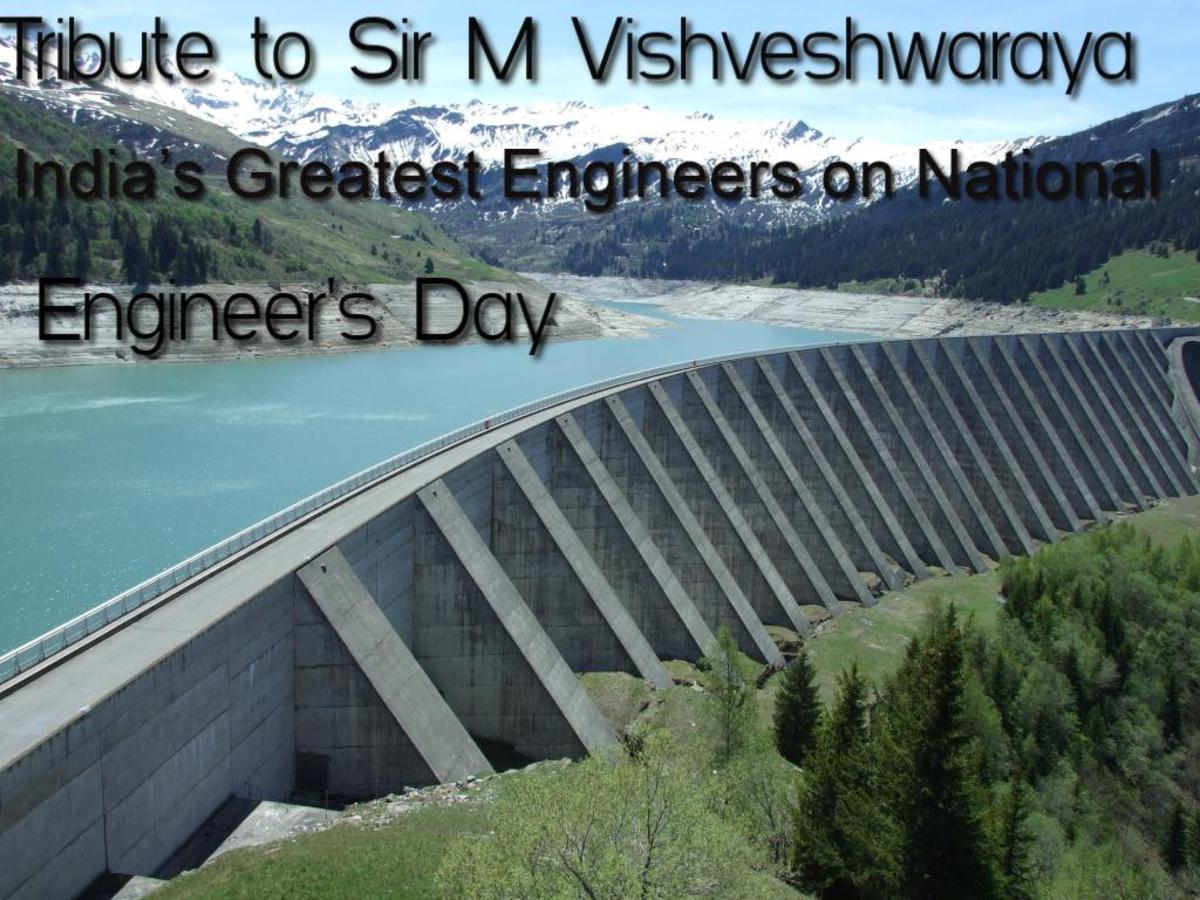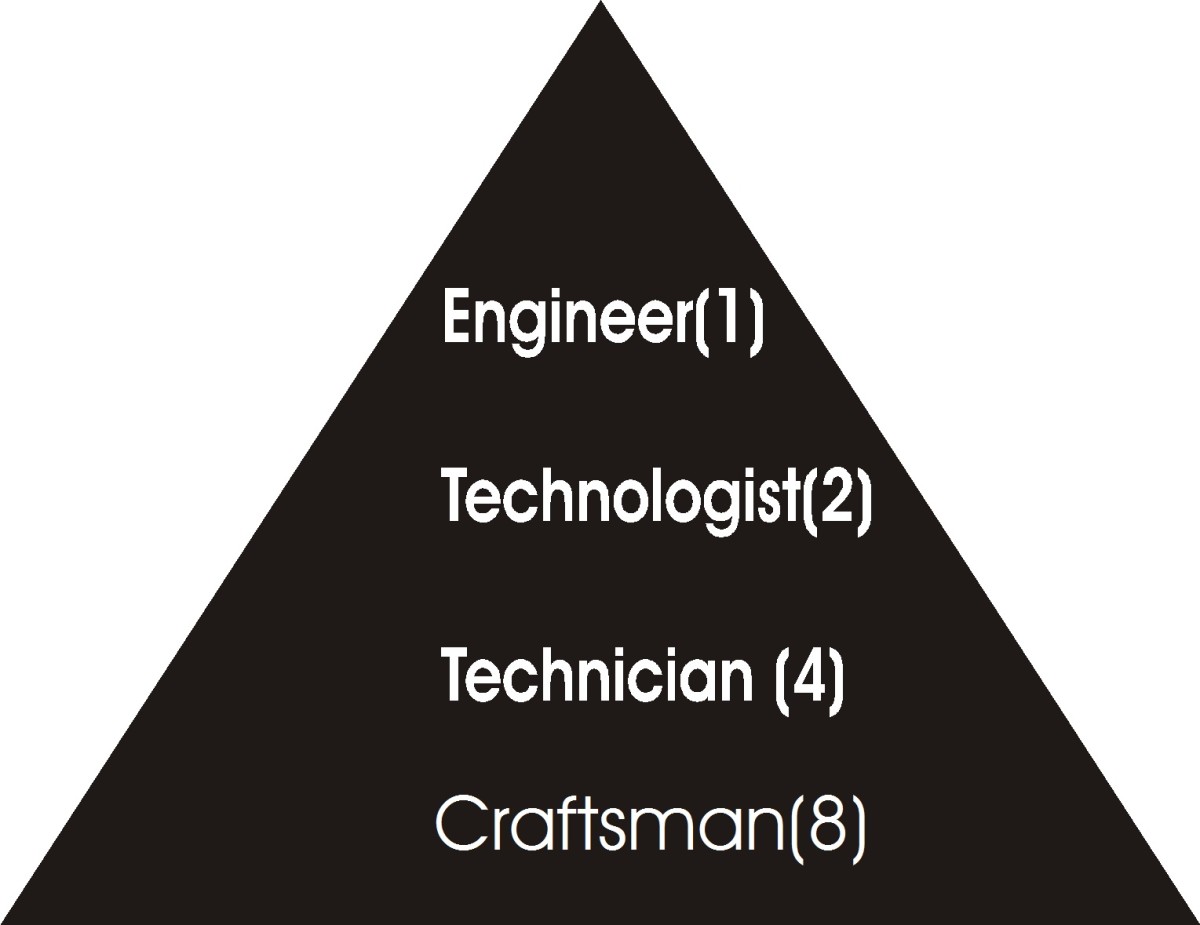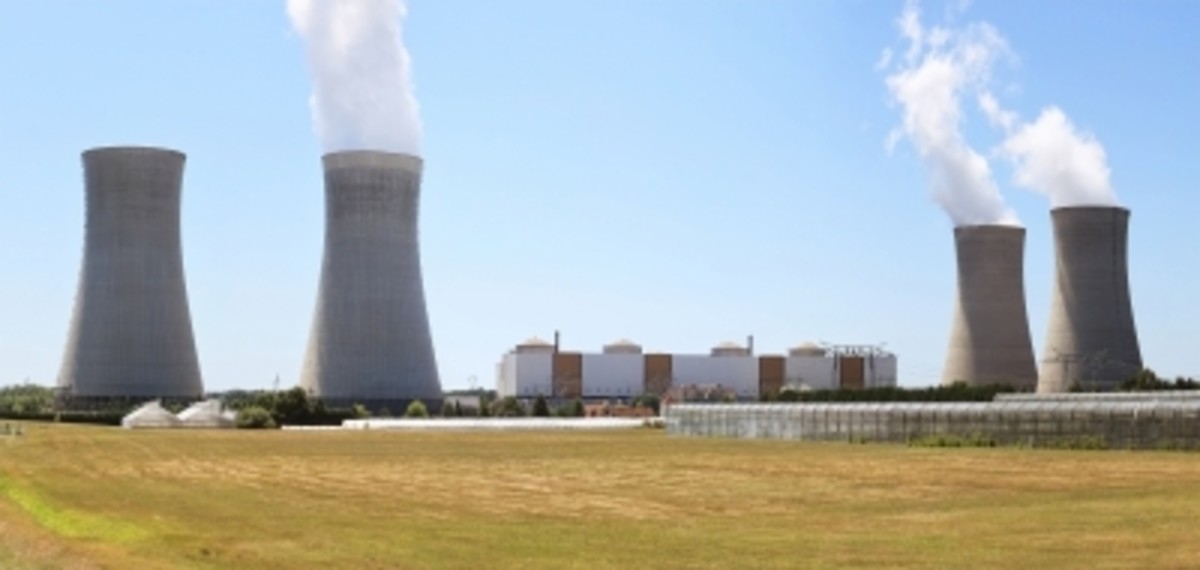How to Become a Nuclear Engineer
In this hub you will find out all you need to know about how to become a nuclear engineer, what nuclear engineers do, where they work, how much they earn and what their prospects are for the future.
About Nuclear Engineers
Nuclear engineers deal with accessing, using, and controlling the energy released during the splitting of the nucleus of an atom. Splitting atoms is called fission. It produces a nuclear reaction, which creates nuclear energy as well as radiation.
Both nuclear energy and radiation have various uses. Some nuclear engineers design, develop, and operate nuclear power plants used to generate electricity and provide power for navy ships. Other nuclear engineers develop nuclear weapons, find medical uses for radioactive substances, or are concerned with disposal facilities for radioactive waste.
As much as 15,000 nuclear engineers find employment in the United States.

What do Nuclear Engineers do?
Before talking about how to become a nuclear engineer, let's examine what they do and how they do it. Nuclear engineers are concerned with different aspects of the generation, use, and maintenance of nuclear energy as well as the safe disposal of nuclear waste.
Nuclear engineers also work on research and development projects, design projects, safety analysis, fuel management, operation and testing, education, and sales. All of these jobs affect industrial power supplies, the food industry, medical technology, and many other industries and areas.
What Nuclear Engineers Do Video
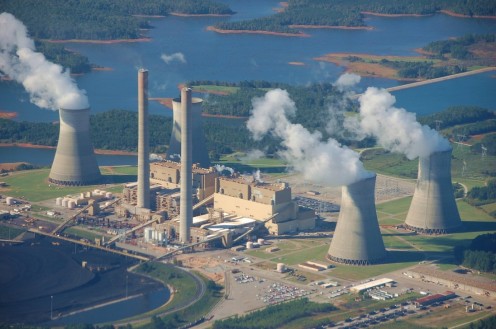
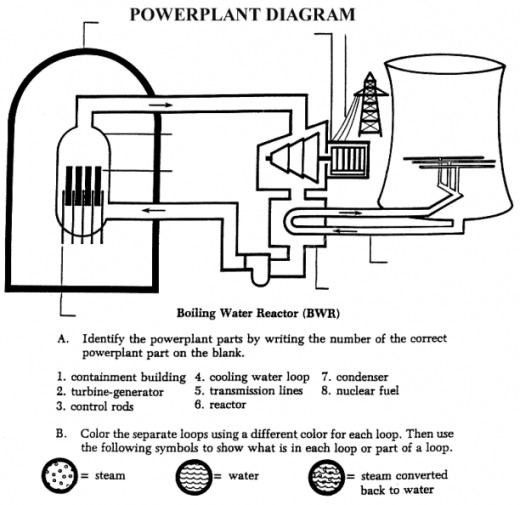
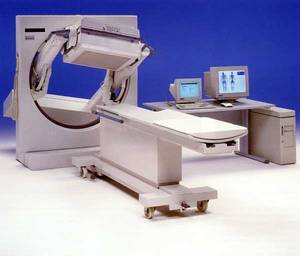
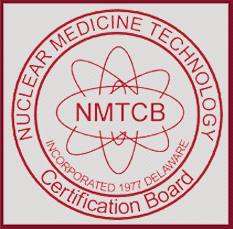
However, it is the power industry that dominates nuclear engineering. Many nuclear engineers find employment with companies that manufacture nuclear reactors. They work in R&D departments and manufacturing. They also install parts such as core supports, thermal shields, biological shields, reflectors, instrumentation, and safety and control systems.
Nuclear engineers who are primarily responsible for the maintenance of power plants have to constantly and effectively monitor operations and ensure that facilities meet various safety standards.
Every nuclear energy activity in the US is regulated and overseen by the government as well as independent agencies, such as the Nuclear Regulatory Commission (NRC). The NRC supervises how electric utility firms use nuclear materials throughout the country. NRC employees work to ensure the safety of non-government nuclear substances, materials and facilities. They make sure related operations do not adversely affect the environment and public health.
Nuclear engineers are also employed by regulatory agencies to set the standards that organizations involved with nuclear energy must comply with. They are responsible for issuing licenses, implementing safety research, establishing rules, conducting on-site inspections, performing risk analyses, etc.
Some nuclear engineers employed by power plants concentrate on the quality of the water supply. Their plants extract salt from water, and they work on new techniques and designs for such desalinization systems.
In the food industry, nuclear energy is utilized for pasteurization, fertilizer production, and insect and pest control. In addition, nuclear engineers are involved in genetic research on making improvements in food strains and their resistance to harmful effects.
In modern medicine, nuclear engineers design equipment for diagnosing and treating illnesses. They carry out research on radioisotopes produced by nuclear reactions. These are used in X-ray equipment, heart pacemakers, and for sterilization.
Nuclear engineers are found in many other jobs including nuclear criticality safety engineers, nuclear health physicists, and radiation protection technicians who conduct research and training programs in order to protect plant and lab workers against radiation hazards.
Nuclear fuels research and reclamation engineers are concerned with reprocessing systems for atomic fuels. Accelerator operators operate equipment used in experiments on subatomic particles, while scanners work with photos, produced by particle detectors, of atomic collisions.

Requirements for Becoming a Nuclear Engineer
High School
If you are interested in knowing how to become a nuclear engineer, familiarize yourself with the following requirements.
You must begin training in high school by taking honors-level courses in math and the sciences. Talking is specifics, you should aim to complete courses in geometry, trigonometry, calculus, algebra, physics, chemistry, and biology.
Also, take English courses, social studies, and a foreign language preferably German or French as many published technical papers required reading in later years are often written in these languages. Acquire computer skills by taking computer science classes.
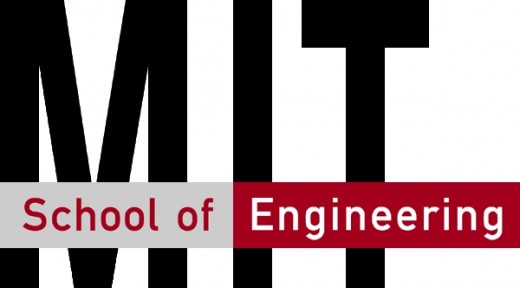

Post-secondary training to become a nuclear engineer
Becoming a nuclear engineer involves getting at least a bachelor’s degree. You have to attend a 4-year college or university, one that is approved by the Accreditation Board for Engineering and Technology.
Here you will take courses in subjects similar to those studied in high school only at an advanced level. Also, you will study engineering sciences and nuclear and atomic physics.
These subjects are essential to be able to analyze and design nuclear systems and to understand their operations. You will study the interaction between radiation and matter, the production and use of radioisotopes, radiation measurements, reactor physics and engineering, and fusion reactions.
To get a job in research or higher education as a nuclear engineer, you are required to have a master’s or doctoral degree. The same is true for administrative or supervisory positions. For advanced specialization, a graduate degree in nuclear engineering is recommended.
Institutions offering advanced degrees have well-equipped labs and even nuclear reactors for teaching and research purposes. Contact the U.S. Department of Energy to acquire more information about these schools.
Certification or Licensing
A professional engineer or PE license is needed before you could get employed on public projects - work affecting life, health, or property. Most states require a degree from an accredited engineering program, a minimum grade on a state exam and about 4 years of work experience in the field.
Other requirements for becoming a nuclear engineer
Exposure to high levels of radiation may be hazardous, therefore nuclear engineers must always follow sufficient safety measures.
Near radioactive materials, strict precautions must e taken as described in regulatory standards. Pregnant female engineers will not be permitted to work in certain areas or to carry out certain duties on account of the risk of potential harm to the human fetus from radiation.
Becoming a nuclear engineer involves on-going, life-long education. As nuclear engineering is based on the fundamental theories of physics. It is god to be aware that the notions of atomic and nuclear theory are difficult to comprehend except through mathematics, therefore aptitude for mathematics, physics, and chemistry is indispensable in this profession.

How to Exploring Nuclear Engineering
If you are interested in more details on how to become a nuclear engineer, you can join science clubs such as the Junior Engineering Technical Society (JETS). JETS has a chapter in almost every state.
Science clubs help you to work in cooperation with others, take part in career exploration and design engineering projects.
You can learn about engineering careers in The Pre-Engineering Times. It also provides and a wide variety of engineering-related resources.
For more advanced students, it is advisable to read materials published by the American Nuclear Society.

Where do Nuclear Engineers work?
Nuclear engineers work in a wide variety of settings. According to data from the U.S. Department of Labor, 30 percent of the approx. 15,000 nuclear engineers in the United States is employed in research and development (R&D) in the engineering, physical, and life sciences.
Many others work for electrical power firms such as Union Electric, reactor manufacturers such as General Electric and Westinghouse, national labs, architect-engineering companies and consulting firms, and the federal government.
Many federal government engineers are civilian employees of the navy, and the rest tend to work for the U.S. Department of Energy (DOE).

Society of Women Engineers SWE
How to start in Nuclear Engineering
Becoming a nuclear engineer begins with job seeking while still in college. Students collect advice from the schools’ career services centers as well as job counselors. They also use Web sites and organizations to find vacant positions.
The Society of Women Engineers (SWE), for instance, lets members post their resumes or find job matches via its website.
Another great way to gather info on job openings is networking with people already working in the field. Professional organizations hold meetings and conferences that offer excellent networking opportunities.

Advancement in Nuclear Engineering
In nuclear engineering, the chief engineer has overall authority over managers and project engineers in the hierarchy. This is true in all departments. Having gained sufficient experience, engineers may apply for positions in management and supervision.
Beyond gaining experience and expertise in the field, advancement for nuclear engineers depends on on-going education and research activity.
Advancement may go with recognition by way of scholarships, grants, fellowships, and awards. The American Nuclear Society (ANS), for instance, has founded a Young Members Engineering Achievement Award to recognize the outstanding performance of its members.

Salaries in Nuclear Engineering
The U.S. Department of Labor reports that nuclear engineers earned a median income of $97,080 in 2008. According to the department the highest paid 10 percent of nuclear engineers made more than $136,880, while the lowest paid 10 percent made less than $68,300 per annum.
Those who worked for the federal government had an average income of $92,630 in the same year. Those with bachelor’s degrees in nuclear engineering averaged starting salaries of $56,587.
Most employers offer benefits such as paid vacation and sick days, retirement plans, and health insurance.

Nuclear Reactor Operator
Work Environment of Nuclear Engineers
Working in nuclear engineering involves, especially at power plants, high levels of stress, on account of responsibility for the prevention of large-scale accidents involving radiation.
Nuclear engineers may also risk radiation contamination if they work directly with nuclear energy. The disposal of hazardous material is also stressful work, as engineers working in the field must take great measures and responsibility to ensure the public’s health and safety.
Many nuclear engineers not involved with the maintenance of nuclear facilities spend most of their time conducting research in nuclear laboratories or teaching students in classrooms. They often work at desks. They are required to be able to focus on very detailed data for long time intervals, while constructing plans and models of nuclear applications.

Future of Nuclear Power
Future of Nuclear Engineering
The U.S. Department of Labor estimates that employment growth in the field will be about as steady as the average through 2016.
According to the Nuclear Energy Institute (NEI), a survey taken in 2008 showed that 75 percent of 1,000 Americans were in support of the use of nuclear energy. Moreover, about 70 percent even supported the establishment of new nuclear facilities in future.
Construction of new nuclear power plants started in 2010. The NEI reports that 18 new facilities applied for construction licenses between 2007 and 2009.
With the growing number of facilities and the need to operate existing plants, the nuclear engineers of the future face very good prospects in terms of employment and salaries. Defense-related areas, medical technology, waste management, and the field of safety standards will all require nuclear engineers in the future.

More information for Nuclear Engineer Wannabes
If you are interested in the subject, it is worth digging deeper into how to become a nuclear engineer using these resources.
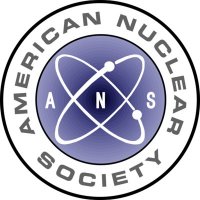
Information on scholarships, education, and careers in nuclear engineering
American Nuclear Society
555 North Kensington Avenue
LaGrange Park, IL 60526-5592
Tel: 800-323-3044

Information on student membership
Junior Engineering Technical Society Inc.
1420 King Street, Suite 405
Alexandria, VA 22314-2750
Tel: 703-548-5387
Email: info@jets.org
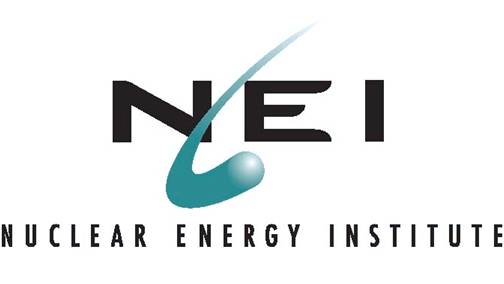
Information on careers and the nuclear engineering industry
Nuclear Energy Institute
1776 I Street, NW, Suite 400
Washington, DC 20006-3708
Tel: 202-739-8000

Career guidance and scholarship information for women
Society of Women Engineers
230 East Ohio Street, Suite 400
Chicago, IL 60611-3265
Tel: 312-596-5223
Email: hq@swe.org
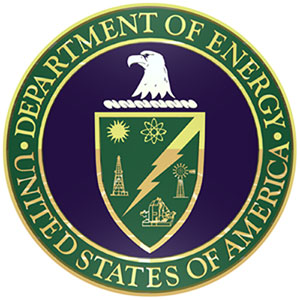
Information on careers and nuclear power
U.S. Department of Energy
1000 Independence Avenue, SW
Washington, DC 20585-0001
Tel: 800-342-5363


